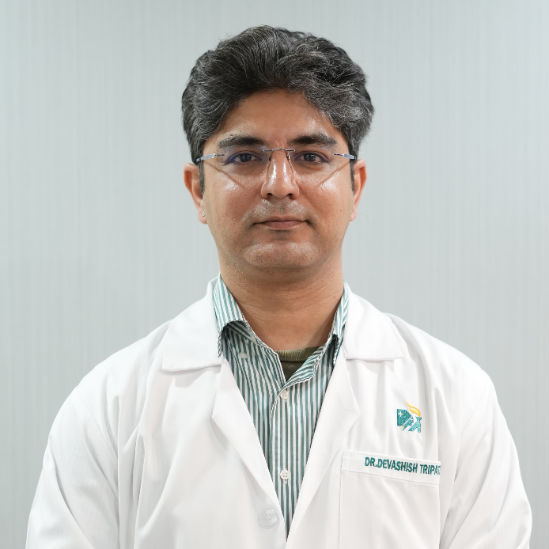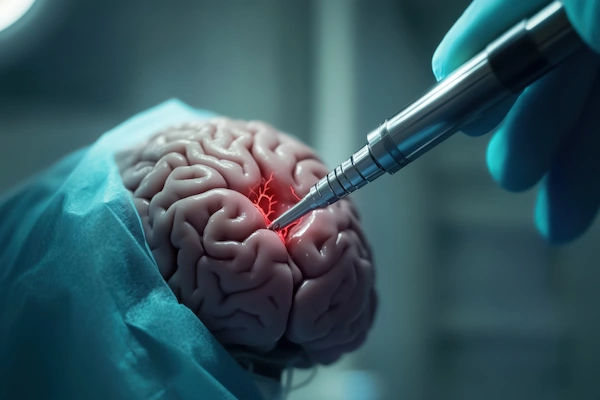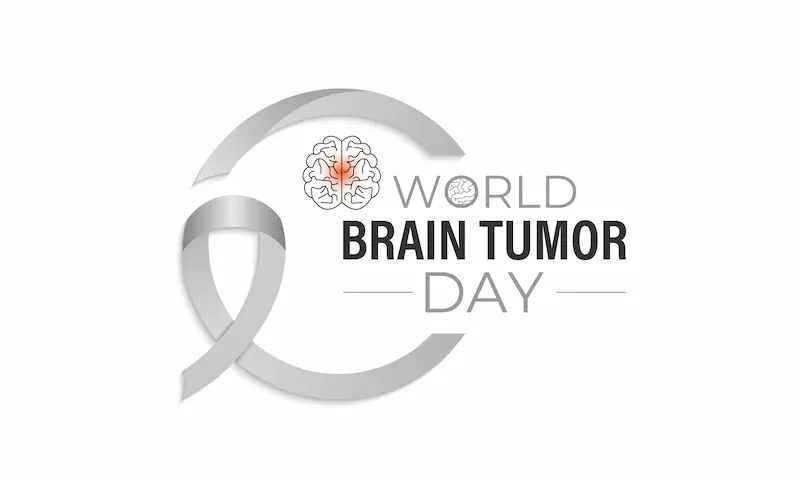Guide to Meningioma Brain Tumors: Answers Commonly Asked Questions
Learn about meningioma brain tumors, including symptoms, causes, risk factors, diagnosis, treatment options, and answers to commonly asked questions.


Introduction
Hearing the words "brain tumor" is a life-altering moment that instantly sparks fear and uncertainty. However, not all brain tumors are the same. Meningiomas are among the most common types of primary brain tumors, and the vast majority are non-cancerous (benign). Arising from the meninges—the protective layers surrounding your brain and spinal cord—these growths often develop slowly and may not cause symptoms for years, if ever. This guide is designed to demystify meningioma brain tumors, providing clear answers to your most pressing questions. We will walk you through everything from recognising early signs and understanding diagnosis to evaluating modern treatment options and navigating life after a diagnosis, empowering you with knowledge and a sense of hope.
What is a Meningioma? Understanding the Basics
A meningioma is a tumor that forms on the meninges, the three layers of tissue that cover and protect your brain and spinal cord. Importantly, because it originates in the meninges and not the brain tissue itself, it is often categorised as an intracranial tumor rather than a true "brain cancer." Most meningiomas are benign (non-cancerous), meaning they grow slowly, have clear borders, and do not spread to other parts of the body.
The Meninges: Your Brain's Protective Layer
To understand a meningioma, it helps to know about the meninges. This protective system consists of:
- Dura mater: The tough, outer layer.
- Arachnoid mater: The web-like middle layer where most meningiomas originate from arachnoid cap cells.
- Pia mater: The delicate, inner layer that contours the brain.
Benign vs. Malignant Meningiomas
- Approximately 90% of meningiomas are benign (Grade I). Atypical meningiomas (Grade II) make up about 7-8% and are slightly more aggressive. Malignant meningiomas (Grade III) are rare, making up only 1-3%, and are fast-growing and more likely to recur. Even a benign tumor can be serious if it grows and presses on critical areas of the brain.
How Common Are Meningiomas?
- They are the most common primary brain tumor, accounting for about 38% of all cases. An estimated 42,000 people in the U.S. are diagnosed each year. They are more frequently diagnosed in women than men and are most common in adults over the age of 60.
Consult a Specialist for the best advice
Recognising the Signs: Symptoms of a Meningioma
Symptoms of a meningioma often appear gradually and can be subtle at first, sometimes mistaken for normal aging or other conditions. They occur primarily because the growing tumor presses on the brain or spinal cord, or on nearby nerves and blood vessels.
General Symptoms Caused by Pressure
- New-onset or worsening headaches that may be more severe in the morning.
- Seizures in someone with no prior history.
- Blurred vision or double vision.
- Memory loss or cognitive difficulties.
- Unexplained nausea or vomiting.
- Changes in personality or behavior.
Location-Specific Symptoms
Where the tumor is located greatly influences the symptoms of meningioma.
- Frontal Lobe Meningiomas: Can cause changes in personality, reasoning deficits, and a loss of smell.
- Sphenoid Wing Meningiomas: Often lead to visual problems, such as loss of peripheral vision.
- Olfactory Groove Meningiomas: Typically cause a loss of smell (anosmia) and can impact vision.
- Posterior Fossa Meningiomas: Located at the back of the brain, these can cause loss of balance, hearing loss, and facial numbness.
When to See a Doctor
- If you experience persistent and progressive symptoms like those listed above, it is crucial to seek medical evaluation. If symptoms like new, persistent headaches or vision changes occur, consult a doctor online with Apollo24|7 for further evaluation. Early diagnosis can be key to managing the condition effectively.
Causes and Risk Factors: Who is Most at Risk?
The exact causes of brain meningioma are not fully understood, but researchers have identified several key risk factors.
The Role of Genetics and Chromosomes
- Most meningiomas occur sporadically, but certain genetic mutations, like a deletion on chromosome 22, are common. People with the genetic disorder neurofibromatosis type 2 (NF2) have a significantly higher risk of developing meningiomas and other nervous system tumors.
Environmental and Medical Risk Factors
- The strongest environmental link is exposure to ionising radiation, particularly from radiation therapy directed at the head. Some studies have suggested a potential link with past hormone replacement therapy, but the evidence is not conclusive.
The Link to Hormones and Gender
- The fact that meningiomas are about twice as common in women than men suggests a hormonal component. Many meningioma cells have receptors for progesterone, estrogen, and androgens, which may influence their growth. This is why some tumors may grow faster during pregnancy.
Treatment Options: From Watchful Waiting to Surgery
The chosen meningioma treatment plan is highly individualised, depending on the tumor's size, location, grade, and the patient's symptoms and overall health.
Active Monitoring (Watchful Waiting)
- For small, asymptomatic, or slow-growing benign meningiomas discovered incidentally, the best course may be observation. This involves regular MRI scans (often every 6-12 months) to monitor for growth without immediate intervention.
Surgical Removal: Craniotomy and Resection
- Surgery is the primary treatment for meningiomas causing symptoms. The goal is to remove as much of the tumor as safely possible. This procedure, called a craniotomy, involves removing a piece of skull bone to access the brain.
The Goal of Surgery: Simpson Grading
Neurosurgeons use the Simpson Grade to describe the completeness of removal:
- Grade I: Complete removal, including attached dura and bone.
- Grade II: Complete removal + coagulation of dura attachment.
- Grade III: Complete removal without dura coagulation.
- Grade IV: Partial removal.
A higher Simpson grade (I being best) is associated with a lower chance of recurrence.
Radiation Therapy for Meningiomas
Radiation is used when surgery is not possible, for higher-grade tumors, or if a tumor recurs after surgery.
- Stereotactic Radiosurgery (SRS): Despite its name, this is not surgery. It uses highly focused radiation beams (like a Gamma Knife or CyberKnife) to target the tumor precisely in a single session, minimising damage to surrounding tissue.
- Fractionated Radiotherapy: Radiation is delivered in small doses over several weeks. This is often used for larger tumors or those close to critical structures like the optic nerve.
Conclusion
Receiving a meningioma diagnosis can feel overwhelming, but it's important to remember that the vast majority of these tumors are benign and highly treatable. Modern medicine offers a range of effective strategies, from careful observation to advanced minimally invasive treatment options like stereotactic radiosurgery. The journey involves understanding your specific diagnosis—the tumor's grade, location, and behavior—and working closely with a dedicated medical team, including neurosurgeons and oncologists, to create a personalised care plan. Knowledge is your greatest ally. By asking informed questions and understanding the potential symptoms of meningioma, treatment pathways, and long-term management, you can actively participate in your care with confidence and hope for a positive outcome. If your condition requires further diagnosis or management, you can book a physical visit to a neurologist or neurosurgeon with Apollo24|7 to discuss the best path forward.
Consult a Specialist for the best advice
Consult a Specialist for the best advice

Dr. Amit Choraria
Surgical Oncologist
18 Years • MBBS, MS (Surgery) Fellow, Surgical Oncology, Tata Medical Center (FSO) Fellow, European Board of Surgery (Surgical Oncology) (FEBS) Fellow, Minimal Access Surgery (FMAS) Fellow, Indian Association of Gastrointestinal Endosurgeons (FIAGES) UICC Fellow, Royal Marsden NHS, London, UK Visiting Scholar, Plastic Reconstructive Surgery, CGMH, Taiwan Fellow, Robotic Surgical Oncology, Vattikuti Foundation, USA
Kolkata
Apollo Multispeciality Hospitals , Kolkata, Kolkata
(75+ Patients)

Dr Gowshikk Rajkumar
Oncologist
10 Years • MBBS, DMRT, DNB in Radiation oncology
Bengaluru
Apollo Clinic, JP nagar, Bengaluru

Dr. Sanchayan Mandal
Medical Oncologist
17 Years • MBBS, DrNB( MEDICAL ONCOLOGY), DNB (RADIOTHERAPY),ECMO. PDCR. ASCO
Kolkata
MCR SUPER SPECIALITY POLY CLINIC & PATHOLOGY, Kolkata

Dr Devashish Tripathi
Radiation Specialist Oncologist
20 Years • MBBS, PLAB, MRCP (UK)- General Medicine, FRCR (Oncology), Certificate of Completion of Training (CCT)- Clinical Oncology
Delhi
Apollo Hospitals Indraprastha, Delhi

Dr. Harsh J Shah
Surgical Oncologist
15 Years • MS, MCh (GI), DrNB (GI)
Ahmedabad
Apollo Hospitals Gandhinagar, Ahmedabad
Consult a Specialist for the best advice

Dr. Amit Choraria
Surgical Oncologist
18 Years • MBBS, MS (Surgery) Fellow, Surgical Oncology, Tata Medical Center (FSO) Fellow, European Board of Surgery (Surgical Oncology) (FEBS) Fellow, Minimal Access Surgery (FMAS) Fellow, Indian Association of Gastrointestinal Endosurgeons (FIAGES) UICC Fellow, Royal Marsden NHS, London, UK Visiting Scholar, Plastic Reconstructive Surgery, CGMH, Taiwan Fellow, Robotic Surgical Oncology, Vattikuti Foundation, USA
Kolkata
Apollo Multispeciality Hospitals , Kolkata, Kolkata
(75+ Patients)

Dr Gowshikk Rajkumar
Oncologist
10 Years • MBBS, DMRT, DNB in Radiation oncology
Bengaluru
Apollo Clinic, JP nagar, Bengaluru

Dr. Sanchayan Mandal
Medical Oncologist
17 Years • MBBS, DrNB( MEDICAL ONCOLOGY), DNB (RADIOTHERAPY),ECMO. PDCR. ASCO
Kolkata
MCR SUPER SPECIALITY POLY CLINIC & PATHOLOGY, Kolkata

Dr Devashish Tripathi
Radiation Specialist Oncologist
20 Years • MBBS, PLAB, MRCP (UK)- General Medicine, FRCR (Oncology), Certificate of Completion of Training (CCT)- Clinical Oncology
Delhi
Apollo Hospitals Indraprastha, Delhi

Dr. Harsh J Shah
Surgical Oncologist
15 Years • MS, MCh (GI), DrNB (GI)
Ahmedabad
Apollo Hospitals Gandhinagar, Ahmedabad
More articles from Brain Tumor
Frequently Asked Questions
Is a meningioma considered brain cancer?
Not typically. Over 90% of meningiomas are benign (non-cancerous). However, even benign tumors can cause serious problems if they grow and press on the brain. A small percentage are atypical or malignant, which are more aggressive.
Can a meningioma be left untreated?
Yes, many small, asymptomatic meningiomas are discovered incidentally and can be safely monitored with regular MRI scans without immediate treatment. This approach is called 'watchful waiting' or active surveillance.
What is the life expectancy for someone with a meningioma?
For the vast majority with a benign (Grade I) meningioma that is completely removed, life expectancy is normal. Higher-grade tumors have higher recurrence rates and require more aggressive treatment, which can impact prognosis.
What are the common risks of meningioma surgery?
As with any brain surgery, risks include infection, bleeding, blood clots, and reactions to anesthesia. Specific neurological risks depend on the tumor's location and can include damage to nerves controlling vision, hearing, smell, or muscle movement.
Do meningiomas run in families?
Most do not and occur sporadically. However, having a family history of genetic conditions like neurofibromatosis type 2 (NF2) significantly increases risk. If you have a strong family history, discussing it with a doctor is advised.




